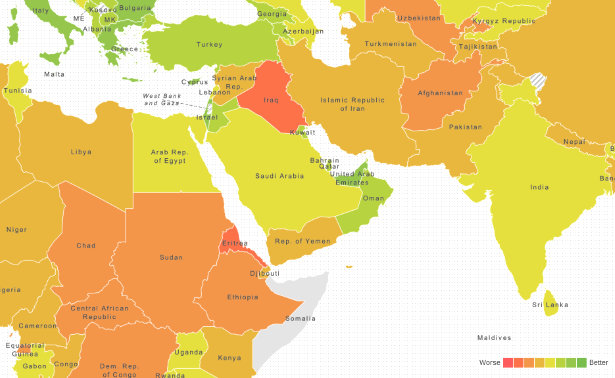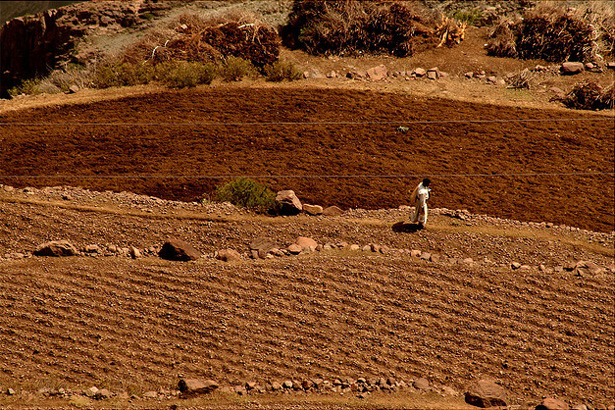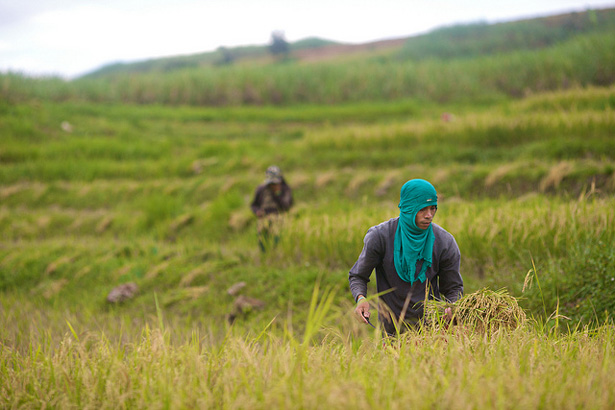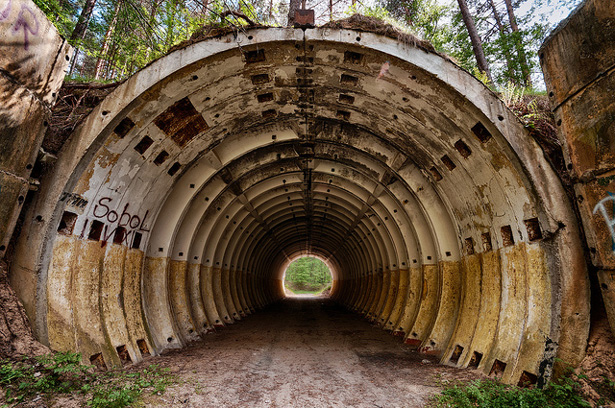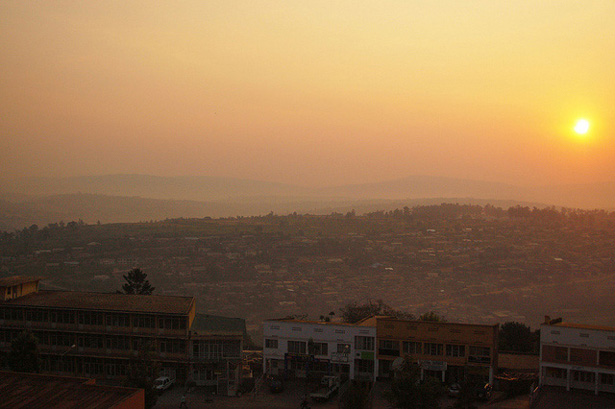-
What Can Demography Tell Us About the Advent of Democracy?
›April 28, 2014 // By Elizabeth Leahy MadsenDemocracy is fickle. Many of the competing theories on the best ways to foment and consolidate plural, inclusive governance or predict its rise and fall focus on political and economic forces. Yet a small group of demographers have explored population age structure as a catalyst for and reflection of a host of changes in societies that can affect governance. -
Ready for Change: Notre Dame Launches the Global Adaptation Index
›
In 2008 and 2010, the price of many basic food stuffs soared, sparking a series of riots and food crises around the world. People in the poorest countries – those living with the smallest margins – were most affected, while the economies of developed nations were able to absorb the price changes. According to Notre Dame’s Global Adaptation Index, how climate change will impact different countries depends not only on their vulnerability to physical changes, but also their ability to absorb these impacts. [Video Below]
-
Food Security and Sociopolitical Stability (Book Launch)
›
Following a surge in global food prices in 2008 and again in 2011, policymakers and scholars have paid increased attention to the intersection of food security and political volatility. [Video Below]
-
Codi Yeager-Kozacek, Circle of Blue
Water a Key Issue As Developing Countries Drive Growth in Global Food Production
›August 22, 2013 // By Wilson Center Staff
The original version of this article, by Codi Yeager-Kozacek, appeared on Circle of Blue.
Developing countries will account for much of the world’s growth in agricultural production, demand, and trade during the next decade, as production growth in developed countries slows, according to reports from leading food policy organizations. The shift will pose challenges for the quality and abundance of water supplies in regions like South America, Asia, and Africa.
-
Environmental Security: A Guide to the Issues (Book Preview)
›
I remember the first moment when my interest in national security came crashing into ecological reality. I was on a U.S. government trip to Central Asia to inspect uranium mines in the newly-independent states of the former Soviet Union. The Cold War security imperative to achieve nuclear superiority had done a number on the environment there: Uranium was leached from the ground with sulfuric acid, transformed into a uranium oxide powder called yellowcake, and shipped off to be enriched for nuclear reactor fuel or weapons. The generals in Moscow who issued these orders did not see the collateral damage that their idea of security wreaked on the environment in Central Asia. In their attempt to out-weaponize the United States, they laid waste to the groundwater, agriculture, and public health of their own citizens.
-
New UN Population Projections Released: Pockets of High Fertility Drive Overall Increase
›June 26, 2013 // By Elizabeth Leahy Madsen
October 31, 2011, was notable not only for the annual ritual of candy and costumes, but also for its designation by the United Nations as the date when global population reached seven billion. Although just an estimate – demographers are not able to count individuals in real time on such a large scale – the event was an important opportunity to present population trends to the media and public dialogue. Several babies born that day were named the “seven billionth;” in Russia, where various incentives have been implemented to try to boost an ultra-low fertility rate, Vladimir Putin visited a maternity ward to greet one of them.
-
East Asia’s Many Maritime Disputes and the Imperative of Energy Access
›Friction between Japan and China in the East China Sea has escalated this year to the point where jets on both sides have been scrambled and Chinese military vessels have locked their fire control radar onto their Japanese counterparts multiple times. The source of this tension is the Senkaku (as they are known in Japan) or Diaoyu (if you’re in China) Islands – specifically, who owns them.
-
Ruth Greenspan Bell, Bloomberg News
Global Warming Experts Should Think More About the Cold War
›January 2, 2013 // By Wilson Center Staff
The original version of this article, by Ruth Greenspan Bell, appeared on Bloomberg News.
Every year the United Nations convenes diplomats from more than 190 nations to negotiate a climate change treaty, and in many years negotiators go home with little more than the promise of another annual meeting.
Showing posts from category Russia.



